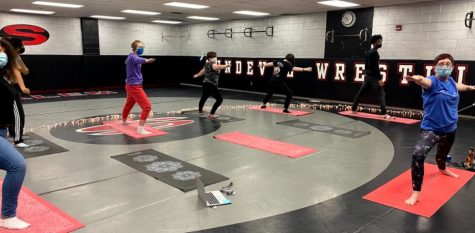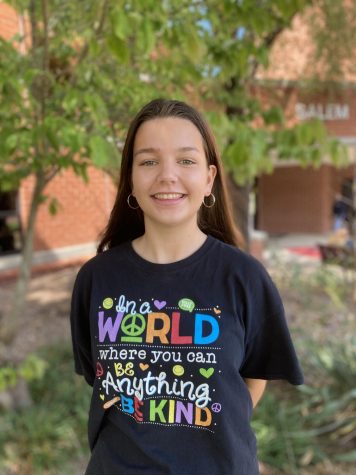Being a COVID era teen is not easy
Quarantine adds to teen’s internal turmoil
April 23, 2021
Teens today are facing so much more than many adults give them credit for. Even in the best of circumstances (meaning they aren’t wanting for basic needs) teens still must juggle parents, school work, finding a personal identity, peer pressure, the climate crisis, and planning for their future, just to name a few.
On top of all of this, teens are now expected to stay mostly at home, to miss out on social gatherings, and to overall have their high school experiences altered due to COVID-19.
“Teens are missing out on those everyday social interactions that add up over time” said school counselor Mrs. Kathryn Kressel. “They are missing their friends and possibly dealing with feeling scared about family situations, perhaps a job loss or worrying about a parent or grandparent getting sick.”
According to The National Library of Medicine “this pandemic may continue to have increased long term adverse consequences on children and adolescents.” Needless to say, it is a really stressful time for teens, but when we are feeling overwhelmed there are strategies that can help.
One strategy is to write things down, whatever comes to mind. According to the University of Rochester Medical Center journaling can help “improve your mood by helping you prioritize problems, fears, and concerns.” It doesn’t have to be a diary with an entry everyday. It can just be there for when it feels necessary to vent some emotions.
But journaling doesn’t work for everyone. Some people need a real person to talk to, like a therapist or just a family member or friend.
“Of course, I’m a big believer in having someone to talk to,” said Kressel. “Whether that’s your parents, friends, teachers, coaches, school counselors, or therapists. Most of my students feel such a relief when they get to share their mental health struggles out loud and get the support they need.”
Kressel also suggests outdoor activities like going on walks on a trail or at the beach.

“It forces us to slow down, breathe, and appreciate the little things,” said Mrs. Kressel
If you can’t get outside, meditation might help. According to Cleveland Clinic “the practice of mindfulness exercises such as meditation will improve focus and concentration.”
There are countless ways to meditate, but it is helpful to sit or lay down in a comfortable position. Close your eyes and breath in and out deeply. Try to clear your mind. It’s hard at first, but when a thought comes, let it finish then acknowledge it and move on. There are all kinds of great guided meditations online. A good place to start is: meditation for beginners or classroom meditation.
Of course, due to the pandemic one of the main things weighing teens down is the lack of socialization. As we return all face-to-face students to classrooms on April 27th we’ll get to see more of our friends, but one way to get more socialization is to participate in a club or sport. Most are still happening despite COVID.
“I’ve joined club sports like club volleyball,” junior Desjanej Holmes
There are a lot of things that can help teens with today’s reality. Don’t forget if you need a mindful moment, check out our School Counseling Virtual Zen Zone. There are some pretty neat activities meant to help you take a moment away from your daily stress. Create some music or art, take a ride through a light tunnel, do a yoga video, or watch some adorable animals. Everything in the room is clickable. www.tiny.cc/SalemCounselors

